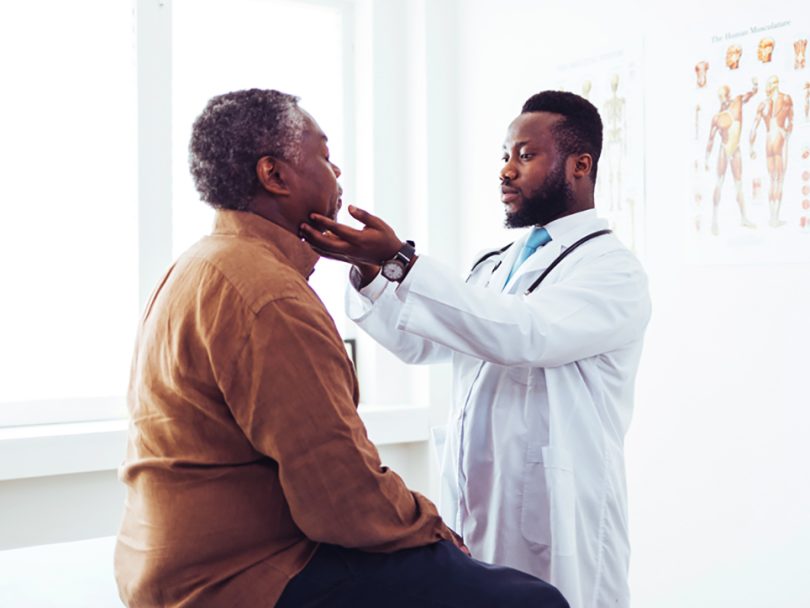Once a year in April, Wellstar MCG Health’s Department of Otolaryngology holds a free cancer screening clinic to celebrate Head and Neck Cancer Screening Month.
On April 19, about 19 people signed up to be screened – free of charge – for a variety of cancers that can show up anywhere around the head, the neck, or on the skin in these areas.
“It’s pretty easy to come and get checked,” said Dr. Daniel Sharbel, an otolaryngologist at Wellstar MCG Health who is also an assistant professor of otolaryngology at the Medical College of Georgia at Augusta University. “It’s open to anybody who’s concerned, especially if they have a smoking history or any symptoms like neck masses, history of head or neck cancer, or family histories of things like thyroid cancer or cancer.”
Symptoms of cancer can include a painful sore that won’t heal after about two weeks, coughing up blood, a mass in the neck, or anything else unusual that lingers longer than it should.
The most common risk factors for head and neck cancers are tobacco and alcohol use. Sharbel said they can have a synergistic effect, working together to cause mutation in the tissue lining of the mouth and throat.
“It’s also an exponential effect. The more you use of each substance, the more your risk increases,” he said.
Sharbel said one of the more common cancers he is seeing in the clinic – one to two patients per week on average – are HPV-related cancers in middle aged men. He said experts are not sure what is behind the rise in these cases.
“It’s a difficult epidemiologic question. HPV infection trends are on the rise, and these cancers tend to manifest in middle age. If you think of cervical cancer in women, this is sort of the analogous one and for some reason it tends to happen more in men,” he said.
Wellstar’s commitment to consumers extends beyond treatment. It includes providing ways to help patients discover and address concerns before they become significant whenever possible, such as through screenings like this one. Though the free head and neck cancer screening is only held once a year, consumers can be screened at any time by talking with their primary care physicians. If a concern needs to be further examined they will be referred to a specialist, Sharbel said.


